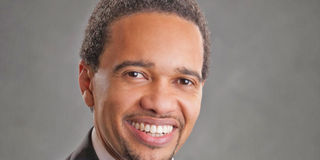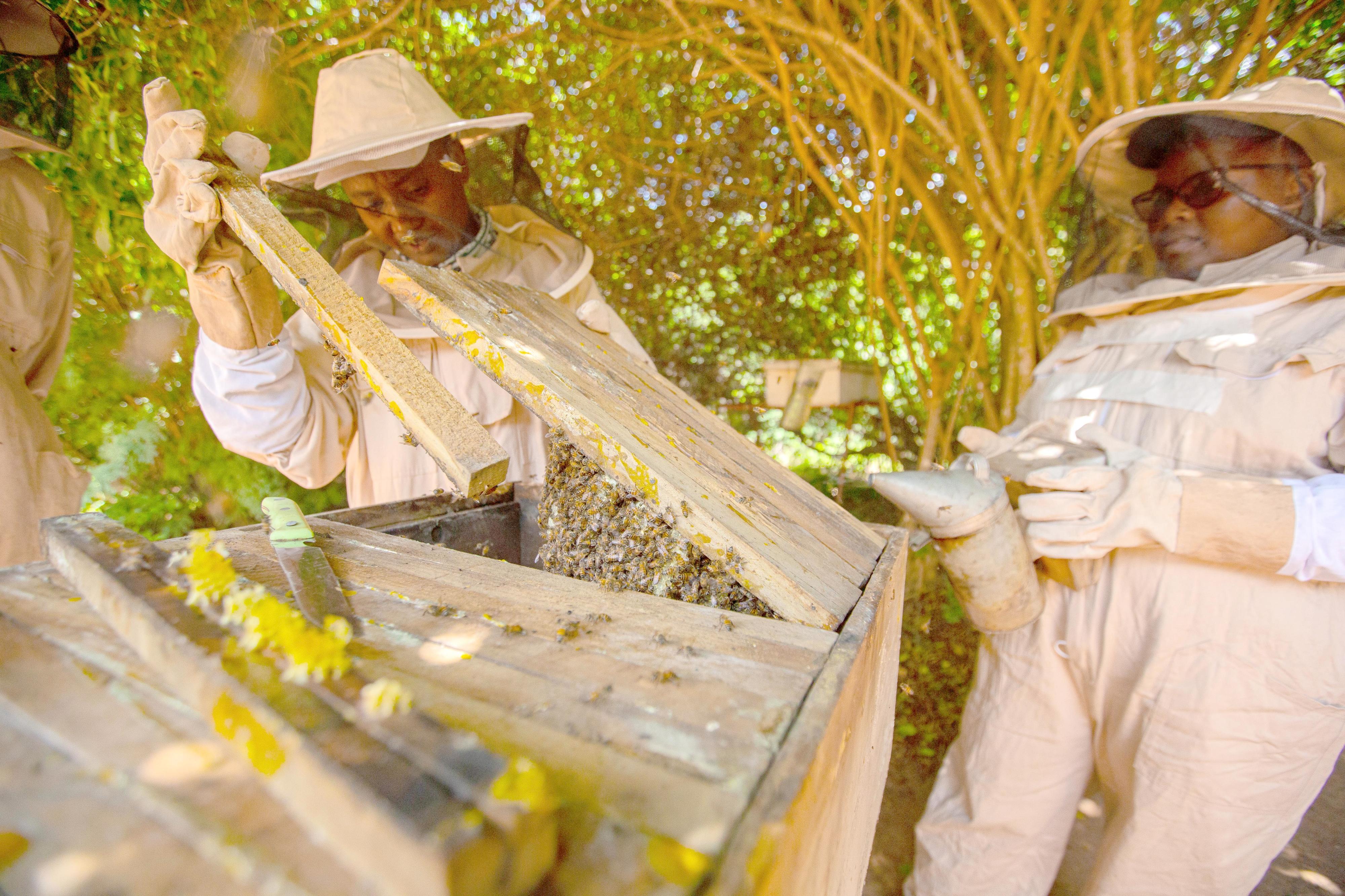Prime
Meet Kinabo, Tanzanian-American investing in education back home

What you need to know:
- Kwame acknowledges that he was among the few privileged to study in the US and make a decent living, motivating him to extend a helping hand.
"Society grows great when old men plant trees whose shade they know they shall never sit in," goes the idiom.
The consistent, selfless acts of uplifting communities in Tanzania through promoting education to alleviate poverty in Arusha households have earned Kwame Kinabo respect and admiration among Tanzanians living in the US.
He has tirelessly galvanised support from fellow diasporans to help young people in Tanzania, a mission he has pursued for years, and he has started seeing positive transformations.
In 2008, the Good Hope Foundation was established in Arusha. Kwame later joined as a sponsor, ensuring that what he earned in America was shared with the children at the orphanage.
Good Hope Foundation is an orphanage and a school for children disenfranchised from society.
During the day, children attend classes, and those without a home are provided with a warm bed, a hot meal, and safe shelter.
Kwame acknowledges that he was among the few privileged to study in the US and make a decent living, motivating him to extend a helping hand.
He also runs a program where exchange students from the US volunteer to teach English and mathematics to the kids at the orphanage.
“I strongly believe education is a way to alleviate poverty,” he stated.
The Good Hope Foundation, which began with only 12 children, has now grown significantly.
Seeing its progress has encouraged more people in the diaspora to support the initiative.
Kwame recently visited Arusha to witness the foundation's development and meet the children.
He oversaw a new building under construction, aimed at giving these children a chance to build better lives.
Kwame moved to the US in 2001 to further his studies and has lived there ever since.
However, he still considers Tanzania his home and plans to return someday.
“I am in the US to work and create a better life for myself and my family, but going back home is mandatory,” he said firmly.
Kwame’s 12-year-old son shows promise as a soccer player and hopes to compete in the Olympics. He already represents the state of Oregon in Olympic tryouts.
When asked which country he would represent, his son said he would choose the one offering the best opportunities.
When he turns 18, he may face the complexities of dual citizenship, a common issue for Tanzanians in the diaspora.
Kwame pointed to a recent soccer match where the DR Congo team, with players from their diaspora, defeated Tanzania’s Taifa Stars, showing the impact of utilising talent from abroad.
“It costs me $40,000 to support my son’s soccer training,” he added.
Kwame longs to be recognised as Tanzanian. He believes Tanzanians abroad are ambassadors for their country, with their actions reflecting their homeland.
Their exposure to the Western world could be advantageous for Tanzania, offering new perspectives in business, science, sports, and other fields.
Many Tanzanians in the US possess skills that would benefit Tanzania, but without citizenship, they cannot contribute fully.
“We have doctors, lawyers, even soccer players who are Tanzanian but aren’t allowed to transfer their skills back home,” he noted.
He emphasised that Tanzania is the only country in East Africa without a dual-citizenship policy, while its neighbours have embraced their diaspora for skills transfer.
The Tanzanian diaspora has engaged the government to advocate for dual citizenship or a special status.
READ: Tanzania to finalise ‘special status’ plans for the Diaspora
This concept was introduced by the Tanzanian government nearly four years ago, but many await its realisation.
“Hopefully, we will get a solution that benefits everyone,” he said. “Changing policies takes time, even in the US, so patience is key.”
Looking at Tanzania’s neighbours like Rwanda, Uganda, Kenya, and the DRC, it is evident they benefit from dual citizenship and special status, not only in sports but also in skill transfer.
Tanzanian professionals abroad, such as scientists, doctors, and professors, face restrictions that limit their ability to contribute to Tanzania’s development, ultimately impacting economic growth and job creation.
The diaspora convention held in Texas in September provided a rare opportunity for Tanzanians in the US to connect.
Kwame was pleased to reunite with friends and see Tanzanian tourism operators promoting the country to potential American tourists.
He also networked with other Tanzanian NGOs in the diaspora, discussing the benefits of consolidating their efforts for greater impact.
Some have independently built schools, but they agreed that joining forces could be advantageous.
For now, Kwame focuses on the impact of the Good Hope Foundation and hopes the government will support the children after they complete primary school.
He believes government involvement would give these children a better chance in life.
“Some may want to attend government vocational training centres like VETA,” he mentioned, citing China as an example of a country that has successfully developed youth through skill training in areas like carpentry, plumbing, and culinary arts.
He hopes the children they support can also gain skills that will be valuable for their futures beyond the foundation.




